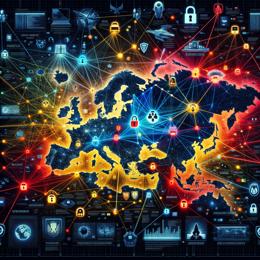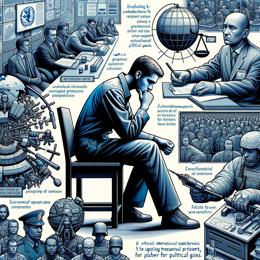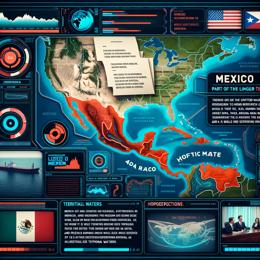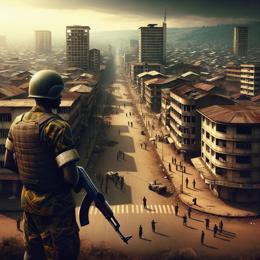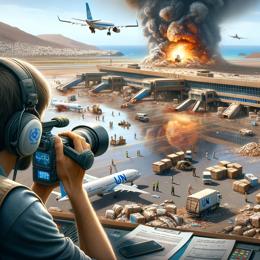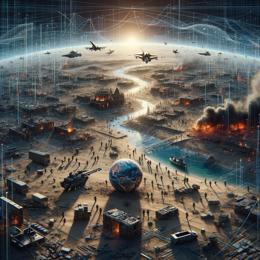Image created by AI
Deepening Crisis: Russian Troops Advance Rapidly as Missiles Heighten Fear in Ukraine
Tensions between Russia and Ukraine have reached a heightened state of alert as Russian troops make substantial advances near Kurakhove in the eastern Donetsk region, progressing by as much as 300 meters a day, according to sources within the Ukrainian military. These developments have surfaced after a pronounced threat by Russian President Vladimir Putin, who demonstrated military prowess by deploying a new hypersonic missile.
This aggressive gesture is part of a broader narrative of escalating conflict, marking a severe intensification of the 33-month-old invasion. The recent events have led to financial repercussions, with the Russian ruble plummeting to a record low since March 2022 following the attack on Dnipro. This strike, significant in its use of nuclear-capable missiles, targeted crucial infrastructures and exacerbated fears within the Ukrainian parliament, prompting a shutdown due to the imminent threat of further missile attacks.
The situation in Ukraine is dire, especially in strategically important locations such as Pokrovsk and the surrounding areas. Moscow's unyielding advance has effectively worn down some of Kyiv’s most commendable military units, with Russian Defense Minister Andrei Belousov boastfully declaring an upend to Ukraine's military prospects up to 2025. The recent capture of the frontline village of Novodmytrivka further underscores the Kremlin's resolve and territorial ambitions.
In an alarming development, President Putin's threatening rhetoric in a hawkish address has not gone unnoticed. He asserts Russia’s right to retaliate against nations supporting Ukraine’s strikes on Russian soil, starkly warning of potential escalations based on Western actions. Meanwhile, the West, led by NATO and notable allies such as the US and UK, has shown unrelenting support for Ukraine, complicating the geopolitical tensions.
On the domestic front, the regular parliamentary proceedings in Kyiv were disrupted as MPs opted to work remotely in light of the increased risks of attacks, particularly targeting the governmental district. This region, often shielded from the direct impacts of the confrontation, now faces a tangible threat that has put the entire capital on high alert.
The global community watches closely, with diplomatic channels buzzing in anticipation of an urgent NATO-Ukraine meeting in Brussels. The discussions are aimed at addressing these rapid escalations and formulating a response that might deter further Russian aggression.
The international reaction has been swift and severe, with leaders like German Chancellor Olaf Scholz condemning the use of medium-range missiles as a "terrible escalation,” and Ukrainian President Volodymyr Zelensky urging a robust global response to Russia's aggressive tactics.
As the world grapples with the reality of an intensifying conflict in Eastern Europe, the events unfolding in Ukraine could potentially dictate a new phase in global diplomacy and conflict resolution.

